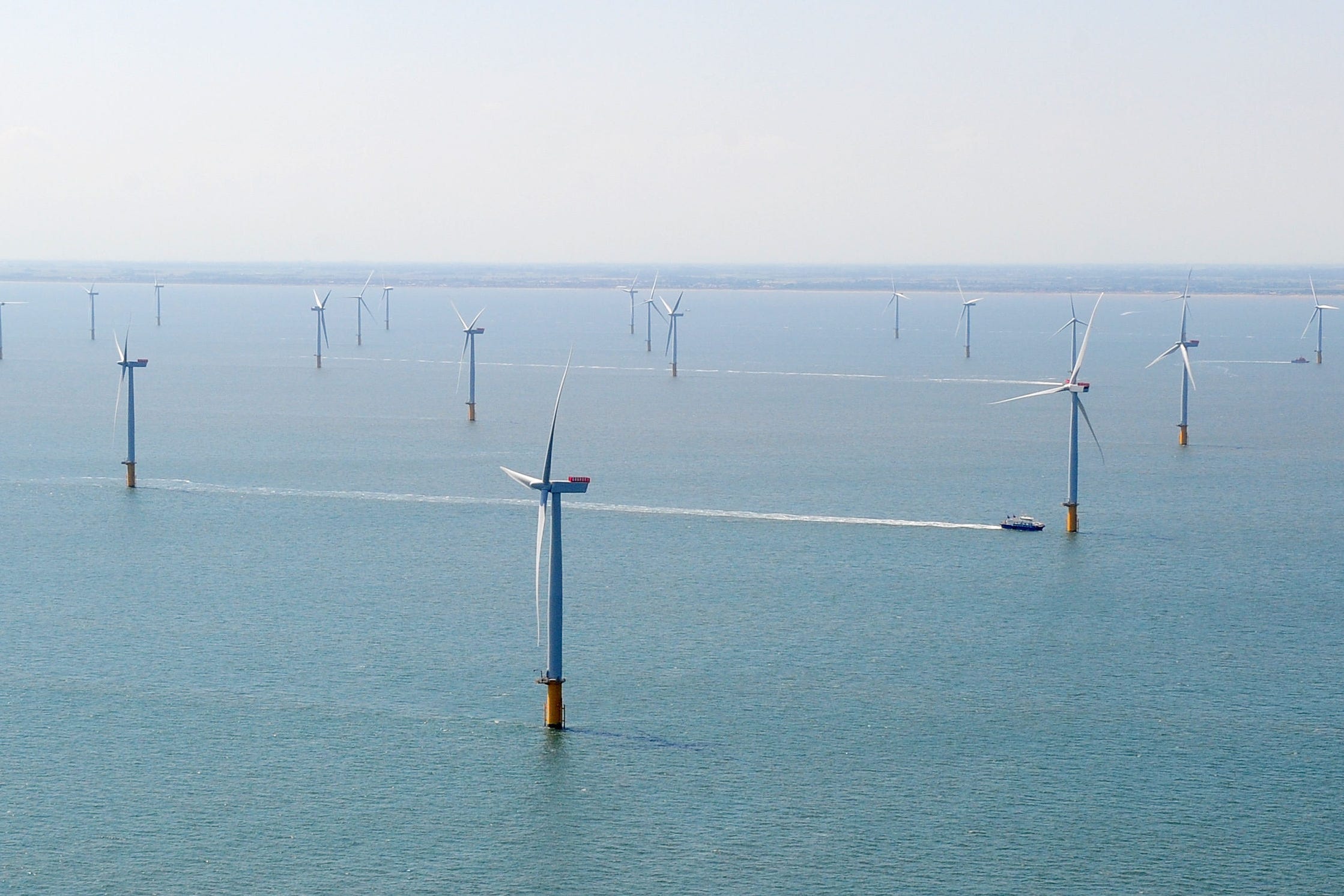New Bill will allow Crown Estate to invest more in green energy, says minister
The Crown Estate is a huge collection of assets owned by the British monarchy.

Your support helps us to tell the story
From reproductive rights to climate change to Big Tech, The Independent is on the ground when the story is developing. Whether it's investigating the financials of Elon Musk's pro-Trump PAC or producing our latest documentary, 'The A Word', which shines a light on the American women fighting for reproductive rights, we know how important it is to parse out the facts from the messaging.
At such a critical moment in US history, we need reporters on the ground. Your donation allows us to keep sending journalists to speak to both sides of the story.
The Independent is trusted by Americans across the entire political spectrum. And unlike many other quality news outlets, we choose not to lock Americans out of our reporting and analysis with paywalls. We believe quality journalism should be available to everyone, paid for by those who can afford it.
Your support makes all the difference.A new Bill will allow the Crown Estate to invest more in green energy and help the UK achieve net zero, a Treasury minister has told Parliament.
The Crown Estate is a huge collection of assets owned by the British monarchy, which includes vast swathes of urban, coastal and maritime land across the UK.
It is run as a business, independent to government, but its profits are delivered to the Treasury each year, after which an annual payment is made to the monarch in the form of the Sovereign Grant.
The new Crown Estate Bill aims to modernise a 1961 law, which created the organisation as it is today, with three key updates.
Firstly, the Bill broadens the Crown Estate’s investment powers by removing existing restrictions.
Secondly, the legislation allows the Crown Estate to borrow money from the Government, with Treasury consent, to invest in more expensive projects and free it up to “make better use of its assets”.
This borrowing will be at commercial rates, meaning the interest it will pay outweighs the Government’s cost of borrowing, with the aim of it being a net benefit to public finances.
Thirdly, the Bill makes amendments relating to the governance of the Crown Estate “to bring it into line with best practice for modern corporate governance”.
Financial secretary to the Treasury Lord Livermore told peers that widening the scope of activities the Crown Estate can engage in will “allow it to further invest in the energy transition” and “will support the delivery of its core purpose across net zero, nature recovery, economic growth and generating returns to the public purse”.
He added that the new borrowing powers “act to accelerate and de-risk the sustainable delivery of offshore wind and other technologies, such as carbon capture, wave, tidal and hydrogen”.
Giving the Crown Estate the ability to invest more widely in growth opportunities will, the minister said, “increase the frequency of leasing for offshore wind”.
The Bill broadens the scope of activities that the Crown Estate can engage in, enabling it to further invest in the energy transition
Introducing the Bill, Lord Livermore said: “The purpose of this Bill is to bring legislation governing the Crown Estate into the 21st century…
“Existing limitations on the Crown Estate’s powers have meant it has had to generate capital for its investment by selling its assets. That is neither desirable, nor sustainable.
“And under current legislation, the Crown Estate is constrained in its ability to support sustainable projects and to preserve our heritage for generations to come.
“These are the reasons why this Bill is necessary and why the Crown Estate has asked successive governments for these reforms.”
There was cross-party support for the Bill across the House, although one Tory peer voiced concern that it “risks politicising the Crown”.
Lord Howard of Rising argued that the Crown “should not be associated with a political act or ambition” and warned that borrowing, without a limit, can be harmful.
He said: “It should be a matter of concern that the Crown Estate, an entity with which the Sovereign has such a close association, should be used for political purposes, however good and noble the intention may be.
“The Crown is apolitical and the Crown Estate must surely come under this umbrella.
To not only use existing resources, but arrange to borrow further to further a political ambition only compounds the error of judgment and is out of order, and in my view, unconstitutional
“To not only use existing resources, but arrange to borrow further to further a political ambition only compounds the error of judgment and is out of order, and in my view, unconstitutional.”
He added: “Whilst it is true that borrowings can enhance success, they can also sink companies.”
Other peers, while expressing general support for the Bill, suggested that more issues could be addressed in it, such as leaseholder rights on Crown Estate land and the devolution of the control of Crown Estate assets in Wales to the Senedd.
The Bill’s second reading debate comes after it was announced in July that the Crown Estate would partner with the new Great British Energy to support “the accelerated delivery of clean energy infrastructure”.
Lord Livermore said: “The Crown Estate has a diverse portfolio that includes management of the seabed and half the foreshore around England, Wales and Northern Ireland.
“It plays a fundamental role in the sustainable development of these assets, including the UK’s world-leading offshore wind, renewables and greenhouse gas reduction technologies.
“Together, Great British energy and the Crown Estate will accelerate the development of the seabed and support infrastructure along the coast of England, Wales and Northern Ireland, creating a pipeline of sites for private developers to invest in.
“That means more clean power happening faster than would otherwise be the case.”